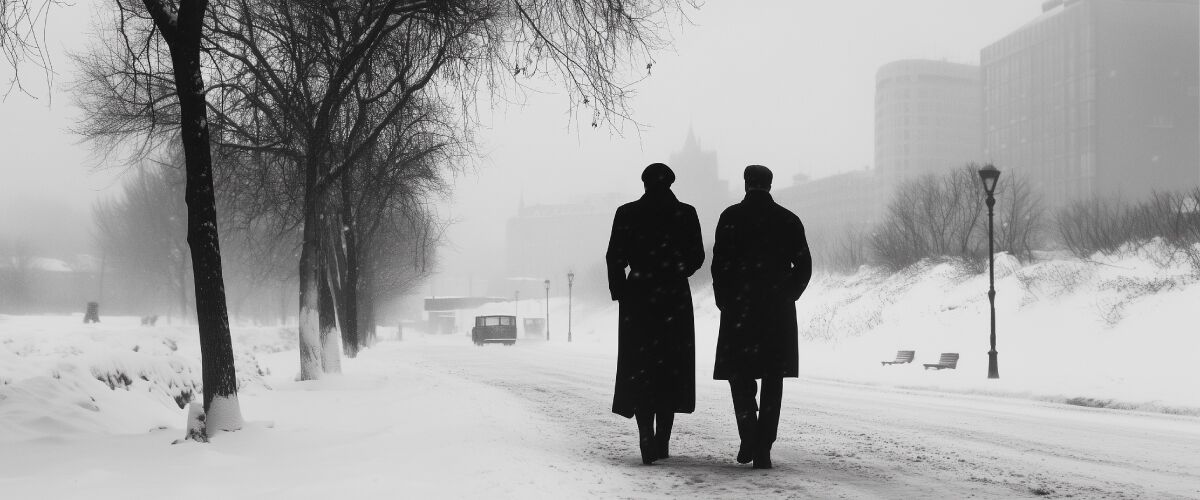The Risks of Nuclear Conflict: A Sobering Reminder from History
On February 24, 2022, Russian President Vladimir Putin shocked the world by invading Ukraine. While the situation remained fluid at that time, there were critical lessons to be learned from Putin’s actions—lessons that Western politicians and mainstream media may not have shared with you.
One of the most important lessons is that it’s never a good idea to play chicken with nuclear weapons. Growing up during the Cold War, I remember cowering under a desk during “duck and cover” drills whenever air raid sirens rang out in my hometown of Kanawha Valley, West Virginia. The Kanawha Valley, branded as the “chemical center of the world” for its many petrochemical factories, was reportedly a prime Soviet nuclear target.
These memories, and recent revelations about close calls in the Cold War, have kept the risks of nuclear conflict at the forefront of my mind. For example, in 1962, Soviet naval officer Vasili Arkhipov may have single-handedly prevented World War 3 during the Cuban Missile Crisis. Trapped by US warships near Cuba, which were dropping depth charges to force the submarine to surface, two of the three senior officers aboard Arkhipov’s nuclear-armed submarine voted to launch a nuclear torpedo. Arkhipov’s refusal to launch likely saved billions from a fiery death. This is just one of many Cold War nuclear close calls that nearly plunged the world into disaster.
Cold War Nuclear Close Calls: Lessons for Today
The 1962 Cuban Missile Crisis wasn’t the only close call between the United States and the Soviet Union. Another lesser-known incident occurred in 1983 during NATO war game preparations. This led the Soviets to believe that the United States was ready to launch a first strike. Once again, it was a single officer—this time, an American—who may have saved the world from nuclear annihilation.
Given this history, when Russian President Putin ordered his nuclear forces to high alert in 2022, it got the world’s attention. Putin’s announcement came after the US, Germany, and others imposed crippling sanctions on Russia. They also sent more weapons to help Ukraine fight the invasion.
Could these actions alone convince Putin to launch a nuclear war? While the answer remains uncertain, the history of mutual miscalculations in scenarios involving nuclear weapons suggests that it could.
The Dangers of Escalation: No-Fly Zones and Nuclear Risks
This brings us to one of the most troubling aspects of the conflict: Ukraine’s President Volodymyr Zelenskyy’s pleas for NATO to establish a no-fly zone over Ukraine. A no-fly zone, enforced by US and other NATO forces, would place the world’s two largest nuclear powers in direct conflict. US Representative Adam Kinzinger (R-IL) has even urged President Biden to dispatch US military forces to Ukraine for that purpose. Risking global nuclear war over a country nearly 6,000 miles away, with deep historical ties to Russia, is extraordinarily reckless. But it’s a sign of how powerful war fever has become.
Avoiding Global Catastrophe: The Importance of Caution
Fortunately, President Biden declared that the United States had no plans to establish a no-fly zone over Ukraine. However, his Secretary of State, Antony Blinken, gave the green light for NATO countries to provide fighter jets to Ukraine. Putin claimed this move would be equivalent to a declaration of war.
Biden has also authorized US forces to deploy to Latvia, Lithuania, and Estonia. These countries were once part of Russia and border it. While the number of troops was relatively small—around 800—the consequences of playing chicken with nuclear weapons could be catastrophic.
Understanding Putin’s Motivations: A Complex Geopolitical Landscape
Unlike some Putin apologists, we don’t defend his brutal invasion of Ukraine, but understanding his motivations is crucial. Russia’s history and geography have deeply influenced Putin’s actions, and while we may empathize with some of his concerns, it’s vital that a future miscalculation or misunderstanding doesn’t spark World War 3.
The Geopolitical Shift: What the Ukraine War Means for the World
The significance of Russia’s war with Ukraine cannot be overstated. It represents the most profound shift in geopolitical reality in nearly 80 years.













